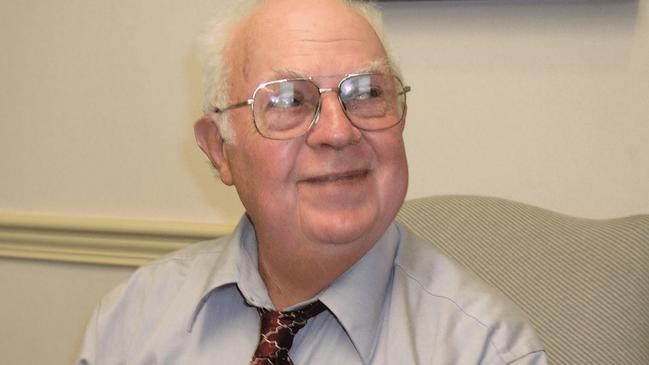Donald Triplett was the first person diagnosed with autism
A brilliant doctor looked at the obsessive, disconnected Donald Triplett and, like his parents, imagined a future for the boy.

Leo Kanner was an accidental human hinge in medical history. He was born in Austria to educated parents, worked hard at school and wished to be a poet. But his poems, none of which survive, went unpublished. Thank god for that. He changed course and studied medicine at the University of Berlin, fought in the Austrian army in World War I, returned to graduate, and worked briefly as a cardiologist before escaping a darkening Germany that would soon see hope in Adolf Hitler.
On a friend’s recommendation he migrated to America, learning the language by completing The New York Times crossword every day. Once he’d mastered English, he taught himself pediatrics and child psychiatry.
Back then, buildings of Dickensian gloom sat ominously at the edges of cities – collection points for the psychologically disturbed children and adults. Jails of a sort. Australia had them: the Ararat Lunatic Asylum in central Victoria, Queensland’s Woogaroo Lunatic Asylum and Sydney’s Tarban Creek. Such was the stigma attached to mental illness that these sites also became graveyards – families often would not retrieve the bodies of not-so-loved ones.
Kanner witnessed an extraordinary experiment by the city of Baltimore during which 166 mentally unwell patients were freed to work as unpaid servants in the homes of the city’s affluent grandees. Kanner decided to track them down: they were suffering tuberculosis, syphilis, hepatitis, were homeless and some had turned to prostitution. Others were dead. Between them they had had 165 children whose stories were similar.
About this time, a difficult boy had been brought to Kanner as a patient and it all fell in place for the clever, kindly doctor.
Donald Triplett’s parents were troubled by their boy’s behaviour. His was a universe of one: he was an emotionless loner (except for what were then called temper tantrums), would not look at his parents in the eye nor react to their voices.
Donald was disconnected and obsessive but with remarkable recall of words and sounds, especially musical notes, which he could repeat in order and in tune on the piano. Aged two, he would recite the 23rd Psalm (The Lord is My Shepherd), but like other phrases he would then repeat it endlessly. At one stage he learned to say “chrysanthemum” – it’s all the Tripletts heard for a while.
His overwhelmed parents, Beamon and Mary, as ordered by doctors, agreed to place him in an institution, but quickly thought better of it and took him home where they believed he would be better off.
The Tripletts then met Kanner, who was heading what would become the internationally famous Johns Hopkins Children’s Centre. Kanner was coming to the conclusion – Donald was one of 11 children he was treating and studying – that what he was seeing was not a symptom of schizophrenia, itself only recently isolated as a disorder and not well understood.
Kanner declared Donald to have autism (created from the Greek word auto, meaning self) and a branch of psychology was born along with the spectrum with which we are familiar.
Donald saw Kanner for years as the doctor tried to unravel the obsessive behaviour of “Case 1” that he called “fascinatingly peculiar”, along the way writing a book, Child Psychiatry, the first in English on the discipline.
With the ever-helpful people of Forest, a small, mostly black community – the local superstar was blues artist Arthur Crudup, who wrote Elvis Presley’s first hit That’s All Right – Donald would become its other celebrity. Embraced as an equal, he attended the local high school and at college graduated with degree in French.
He then joined the bank his father part-owned and stayed there 65 years, with staff marvelling at his ability to multiply complex numbers almost instantly.
He learnt to drive at age 27 and became obsessive about something else – golf.
He also travelled the world visiting 24 countries while always growing in the love of the understanding and accepting community of Forest, even learning to look people in the eye and engage them in his own way.
It was a full life, but Donald’s powerful intellect no doubt helped him learn some of the strategies to survive.
It is estimated one in 70 Australians has autism – former deputy prime minister Tim Fischer counted himself in – with males three times more likely to be diagnosed. It is inheritable, but its cause remains unknown.
Donald Triplett is evidence that is it better we change the world around these people than force them to adjust to it.
Donald Triplett First person diagnosed with autism.
Born Forest, Mississippi, September 8, 1933; died Forest, June 15, aged 89.




To join the conversation, please log in. Don't have an account? Register
Join the conversation, you are commenting as Logout